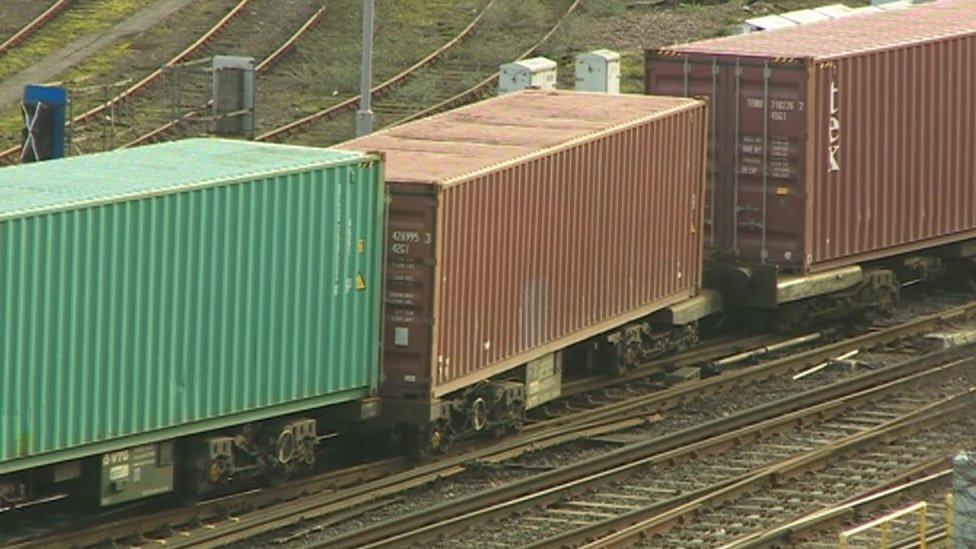Eastleigh derailment: 'No effective inspections by Network Rail'
- Published

Six wagons came off the track at Eastleigh on 28 January 2020
A train derailment happened after Network Rail failed to effectively detect track faults, accident investigators have found.
Six wagons came off the track at Eastleigh, Hampshire, in January 2020, blocking the line and damaging equipment.
The Rail Accident Investigation Branch (RAIB) said Network Rail needed a strategy to prevent a repeat.
Network Rail said it had made changes and that safety was its "top priority".
The derailment happened after fasteners, which connect the rails to the concrete underneath, fractured.
Nobody was injured in the incident on 28 January, but services between Southampton and Basingstoke were disrupted with buses replaces cancelled trains and some routes diverted.
Specialist lifting equipment was brought in to move the stricken freight train carriages
After the derailed wagons were cleared, a 160m (520ft) stretch of temporary track was installed to allow trains to run while a full repair was carried out.
The RAIB report said "significant damage to the infrastructure" was done when the 52-tonne wagons came off, with the locomotive running for about 35m (115ft) before coming to a stop.
The derailment damaged points equipment
Inspectors found cracks in the fastenings, designed to hold rails in place, were not apparent in visual inspections.
Failures in similar fastenings had been identified across several locations across the rail network in 2015 and 2016.
"Despite previous faults of a similar nature elsewhere, Network Rail had not developed an effective inspection regime to detect such failures," the RAIB said.
The investigation also found Network Rail's team in Eastleigh "was not effectively managing the maintenance of its track assets".
The report's recommendations also stressed "the importance of preserving evidence for safety investigations", after evidence was lost during the subsequent track repair work.
Responding to the report's findings, Network Rail's route director for Wessex, Mark Killick, said: "Safety is our top priority and we take any railway incident extremely seriously.
"We have worked closely with the Rail Accident Investigation Branch on their report.
"We acknowledge the recommendations made and have already implemented changes following a detailed internal investigation."
Follow BBC South on Facebook, external, Twitter, external, or Instagram, external. Send your story ideas to south.newsonline@bbc.co.uk, external.
Related topics
- Published6 February 2020
- Published3 February 2020
- Published31 January 2020
- Published30 January 2020
- Published30 January 2020
- Published29 January 2020